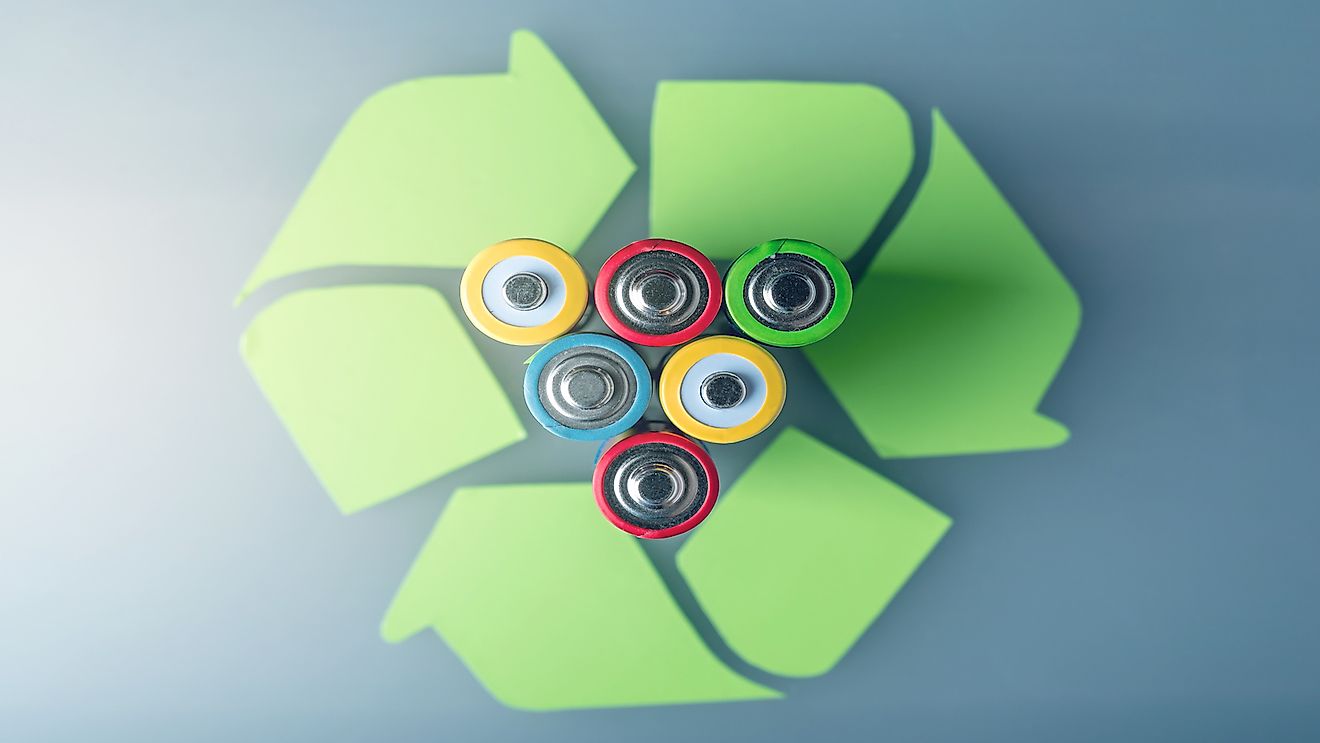European Countries That Are Leaders In Battery Recycling

European countries have accelerated efforts to recycle and properly dispose of used batteries. The strict regulations on the collection and recycling of batteries will play a significant role in the conservation of the environment by eliminating the toxic material contained in them. In 2016, over 200,000 tons of accumulators and portable batteries were sold across the European Union. Getting rid of these batteries have become problematic for most of the countries not only in Europe but also around the world. While some European countries can recycle up to 50% of the batteries that they sell to the market, other countries still have a long way to go. Here are the leading European countries in battery recycling according to Eurostat.
Belgium
Across the European Union, 44% of the batteries released to the market were recycled in 2016. According to the report, Belgium is the leader in battery recycling in Europe, with 71% of all batteries sold in the country collected for recycling. Bebat, a Belgian used battery collection service provider has nearly 24,000 collection points across the country where citizens can return their used batteries. Umicore, another Belgium’s metal producer and recycler, has also piloted a plant in Hoboken which can recycle 7,000 tons/year of lithium batteries to extract metal such as nickel, copper, lithium, and cobalt.
Luxembourg
The EU aims to scale up battery recycling to at least 45% of all batteries released in the market in the region. Besides Belgium, Luxembourg is also a leading battery recycler in Europe, with some 63% of all batteries sold in the country collected for recycling. The country collects approximately 140,000 kg of batteries every year for recycling. There are 25 accredited batteries collectors throughout Luxembourg. Customers can also dispose of their used batteries at some shops with battery disposal bins. The government has approved Ecobatterien which ensures that producers and importers of batteries meet their environmental obligations.
Hungary And Lithuania
Hungary and Lithuania are the third leading battery recyclers in Europe. The two countries managed to collect and recycle 53% of the batteries released to the market. Budapest, Hungary has numerous recycling yards for various waste material including batteries. Several streets have recycling collection points where citizens can dispose of used batteries for recycling. Lithuania Post in cooperation with other private companies has made it possible for residents to dispose of used batteries at the post offices. The batteries are then handed over to partner companies for recycling.
Czech Republic
The Czech Republic enacted a Waste Act in 2009 requiring producers to meet waste collection, recovery, and disposal obligations. Batteries Directive was also included in the Act to ensure that batteries are recycled or properly disposed of. ECOBAT manages all aspects of batteries from collection to recycling. There are over 20,000 battery collection points in the Czech Republic. Stores also have collection boxes where their customers can drop used batteries. The initiative has enabled the Czech Republic to recycle 52% of the batteries sold in 2016.
Austria
Batteries have become an important item in most households in Austria. They are considered some of the safest and cleanest source of energy in the country. The recycling and reuse of material contained in the batteries is an important pillar of waste management in Austria. The return rate of used batteries in the country about 49%, with some sources putting it at 50%. Austrian producers, dealers, and importers who want to place batteries into the market are also required to comply with batteries regulations.
Bulgaria
About 49% of all the batteries sold in Bulgaria in 2016 were collected for recycling, making it one of the few countries to have met the 45%target set by the European Union. According to Eurostat, Bulgaria also improved significantly in the batteries collected for recycling. In 2009, approximately 520 tons of batteries were sold in the country but only 13 tons were collected for recycling. However, in 2016 750 tons were sold and an impressive 362 tons were collected for recycling.
Other Countries That Met The 45% Target
Only 16 EU member states reached the 45% battery collection target set by Batteries Directive. The other nine countries that also reached the target are Ireland (48%), Slovakia (48%), Germany (46%), Netherlands (46%), Finland (46%), Sweden (45%), the United Kingdom (45%), Denmark (45%), and France (45%). The three lowest-ranked countries in the EU are Croatia (29%), Cyprus (28%), and Romania (21%).
European Countries That Are Leaders In Battery Recycling
| Rank | Country | Share of batteries sold collected for recycling in 2016 |
|---|---|---|
| 1 | Belgium | 71% |
| 2 | Luxembourg | 63% |
| 3 | Hungary | 53% |
| 4 | Lithuania | 53% |
| 5 | Czech Republic | 52% |
| 6 | Austria | 49% |
| 7 | Bulgaria | 49% |
| 8 | Ireland | 48% |
| 9 | Slovakia | 48% |
| 10 | Germany | 46% |
| 11 | Netherlands | 46% |
| 12 | Finland | 46% |
| 13 | Sweden | 45% |
| 14 | United Kingdom | 45% |
| 15 | Denmark | 45% |
| 16 | France | 45% |
| 17 | EU | 44% |
| 18 | Portugal | 42% |
| 19 | Malta | 39% |
| 20 | Poland | 39% |
| 21 | Spain | 38% |
| 22 | Slovenia | 36% |
| 23 | Italy | 35% |
| 24 | Greece | 34% |
| 25 | Estonia | 31% |
| 26 | Latvia | 30% |
| 27 | Croatia | 29% |
| 28 | Cyprus | 28% |
| 29 | Romania | 21% |











